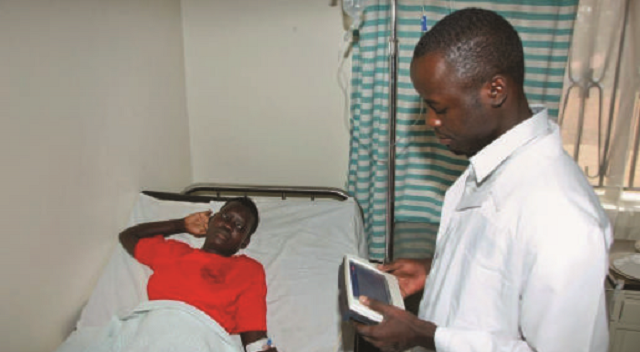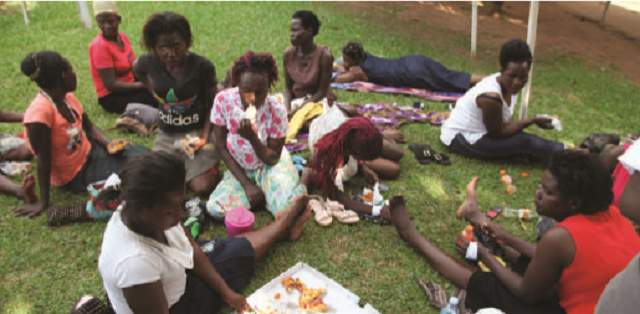
Sam Wambi, the Royal Van Zanten human resource manager in Uganda – who said he could speak on behalf of the company, confirmed to The Independent that the women had been sickened by metam sodium poisoning.
Metam sodium is a “probable human carcinogen” that is highly toxic to mammals, birds and fish, according to the U.S. Environmental Protection Agency, which categorises the fumigant as a “restricted use pesticide” and recommends a minimum of five working days before workers can re-enter following fumigation.
It can cause death, birth defects, and fetal death, according to Beyond Pesticides, a U.S.-based group.
Anyone using it is advised to wear chemical-resistant coveralls over long-sleeved shirts and trousers, a respirator, chemical resistant head gear, foot-wear plus socks, and gloves. The chemical can kill if it enters the body through the skin.
Sam Wambi said although the company had temporarily discontinued use of metam sodium and instead was steaming its flower beds, use of the chemical would resume after precautions required to be followed when using the pesticide were installed.
Wambi, however, said he could not offer a fuller explanation and referred us to the Country Managing Director, Feico Smit.
But Feico has chosen not to speak and switched off his mobile phone.
Royal Van Zanten has two known flower firms in Uganda – one at Buloba and the other in Namaiba in Mukono, also near Kampala City. Incidents of workers suffering chemical poisoning have occurred at both, according to Mercy Grace Munduru, a senior advocacy officer at the Uganda Association of Women Lawyers (FIDA-Uganda). She said the poisoning is being treated as a violation of the human rights of workers.
“We shall be considering legal options to ensure that women who were affected are adequately compensated based on the damages they suffered,” she said.
Munduru said the poisoning at Royal Van Zanten is one of the many infringements on the rights of workers that have happened all the time, year in-year out on flower farmers all over the country.
She said FIDA offices has received numerous complaints, ranging from sexual harassments, low pay, and excessive working hours with disregard to the law to harassment of workers among others.
Employees in the flower farms are said to work under tough conditions and can be fired if they complain about safety issues.
She said it is unfortunate that government has not come up with a clear position regarding the welfare of workers not only in the flower flowers but also in other production companies.

Eye on the money
But the Minister for Trade, Industry and Cooperatives, Amelia Kyambadde, does not want to hear of the complaints. On Nov. 17 she dismissed reports that any workers were poisoned at any flower farm.
Instead, she said, when tests were carried out on the Royal Van Zanten workers who entered the green houses at Buloba, they proved negative according to the Ministry of Gender, Labour and Social Development.
“Some of the infections reported are not at all related to the insecticide,” she said.
She stormed Ntinda Hospital where a section of the company’s workers had been hospitalised and said her Ministry will continue to handle the matter jointly with the Ministry of Labour “to ensure that Uganda does not lose the market for her flowers abroad”.
The minister accusing the Uganda Horticultural Industrial Services Provider and Allied Workers Union (UHISPAWU) and the FIDA-Uganda lawyers of trying to harm Uganda’s flower business.
Horticulture is one of the big businesses in Uganda, providing substantial exports and tax revenue to the government.
Data from the Uganda Flower Exporters Association, which consists of more than 15 companies, shows that in 2014, the country exported 6,810 tonnes of flowers and earned US$38.7 million.
Dr. Tumuhairwe says the affected workers can still work in the flower farms if they wear protective gear.
“For those who have been admitted all this long, we advise them to have a long rest as we keep on recalling them for medical review,” she said.
But The Independent has established that many of the women who suffered poisoning have resumed work. And they have not been provided with any new protective gear.
****
editor@independent.co.ug
 The Independent Uganda: You get the Truth we Pay the Price
The Independent Uganda: You get the Truth we Pay the Price


